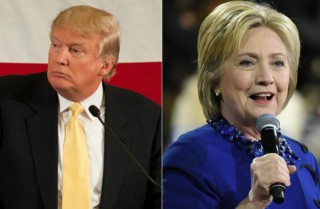 Lawrence Lessig, a Harvard University Professor and constitutional expert, is heading up “Electors Trust,” a coalition that “provides free and strictly confidential legal support to any Elector who wishes to vote their conscience.” During an interview with LawNewz.com on Friday, Lessig said that he knows of “at least 30” Republican electors who expressed interest in voting their conscience—in other words, not voting for Donald Trump on Monday.
Lawrence Lessig, a Harvard University Professor and constitutional expert, is heading up “Electors Trust,” a coalition that “provides free and strictly confidential legal support to any Elector who wishes to vote their conscience.” During an interview with LawNewz.com on Friday, Lessig said that he knows of “at least 30” Republican electors who expressed interest in voting their conscience—in other words, not voting for Donald Trump on Monday.
In order to change the outcome of the election, at least 37 GOP electors would need to break from their respective state’s popular vote and opt for another candidate. In that scenario, the election would go to the House of Representatives. Then, each state delegation has one vote.
Lessig said he became aware of the 30 potentially “faithless” electors by consulting attorneys working with his group, and other organizations with similar missions. LawNewz.com has taken several steps to try to verify his claim but have been unable to do so. Lessig explained electors’ names can’t be revealed because they spoke to attorneys confidentially.
The Harvard Law Professor is offering his services, along with other attorneys, in defending electors who may face legal action if they “vote their conscience” on Monday when the Electoral College is scheduled to meet.
“I think it is a long shot no doubt, but it’s not impossible,” Lessig told LawNewz.com in a phone interview. “A lot depends what happens over the weekend. A lot of people are contacting these organizations.”
Many states have laws on the books which prohibit electors from voting against the popular vote. However, Lessig has taken the controversial position that these laws would not stand up in court. He wrote in a recent article:
Legally, or better, constitutionally, electors are free to exercise their “independent and nonpartisan” judgment, as Justice Jackson put it, however they wish. No state law can tell a presidential elector how he or she must vote, any more than a state law could tell the “electors,” as the Constitution describes them, who select Congress (i.e., we voters) how we must vote. The Constitution sets the requirements for an elector; federal law regulates how electors act. Those are the only legal requirements that may, constitutionally, constrain an elector. Thus, on December 19th, by (what should be a secret) ballot, an elector can vote however he or she wishes, without fear of any legal consequence.
Lessig also agreed that Trump may even take legal action against an elector who decided to vote his/her conscience. Right now, there are 306 Republicans and 232 Democrats that are scheduled to convene when the Electoral College meets. Elector Christoper Suprun is the only Republican elector who has publicly announced that he won’t vote for Donald Trump. Another GOP elector from Texas confirmed that he resigned his position rather than vote for Trump. In addition, there are several Democratic electors who have filed lawsuits to challenge state laws that force electors to support the winner of the statewide popular vote.